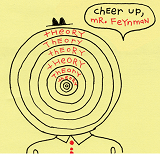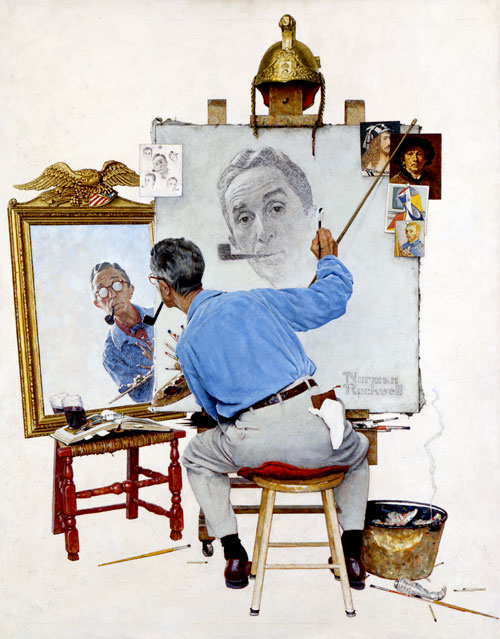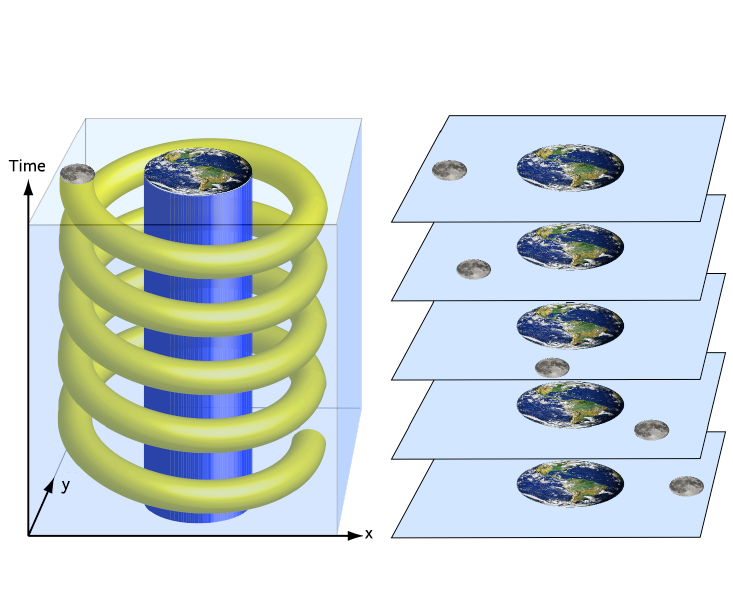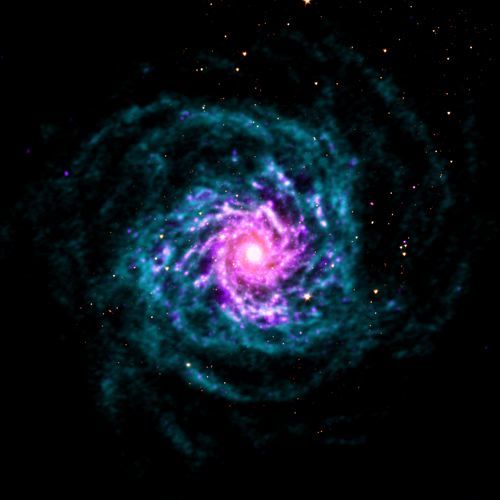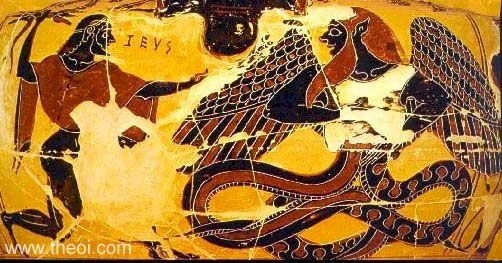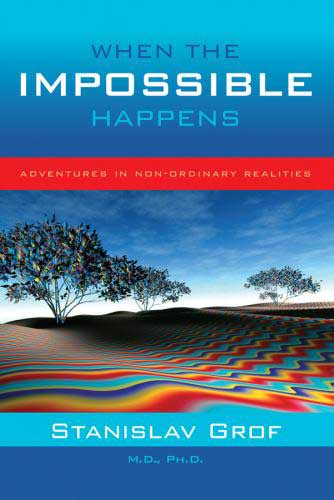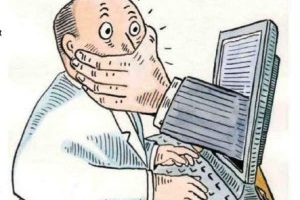

|
Kindness wasn’t invented by humans The most striking thing happened as I began reading Lori Gruen’s book, Entangled Empathy: An Alternative Ethic for Our Relationships with Animals. I was sitting on the porch when a baby white-throated sparrow flew inside. Attempting to escape, the sparrow repeatedly dashed itself against the screens, head down in exhaustion. I tried to lead it to the open door. No luck. But then a male cardinal appeared outside. It hovered, went first to one side of the screen, then the other; held tight one moment, moved softly the next. Flying against the screen, it guided the captive bird, gradually, from side to side, up and down—all the while outside the porch—and led it to the open air. For twenty minutes I watched a bird save another not of its brood, and I thought: now that is empathy. |
1 October 2015
|
|
Blessings for Molly Yes, there will be times when you will have to fight. — Jo Bell |
2 October 2015
|
|
Unicorns, Perpetual Motion Machines, and Physical Theories of Everything We know of no theory that both makes contact with the empirical world, and is absolutely and always true. (I don’t envisage this changing anytime soon, string theorists’ hopes notwithstanding.) Despite this, theoretical physicists have devoted considerable energy to chasing exactly this kind of theory. So, what is going on? Is a universal theory a legitimate goal, or will scientific truth always be scale-dependent? — Read more from Lawrence Krauss writing for Nautilus |
3 October 2015
|
|
In denial about mysteries From one stage of our being to the next, Science looks for its keys under the street lamp, and studies those phenomena that are reliably reproducible. But sometime during the 19th Century, the community of Science took a further step: They declared that all phenomena in our world are reliably reproducible, and therefore any one-off happenings must be mistakes. Of course, this is dogma, not science, and it has had the effect of blinding the scientific community to some of the most interesting phenomena and events in history, merely because they do not fit in with established theory and they cannot be replicated.
How is science to expand and grow and learn new things when it wears such blinders? Einstein said that “The most incomprehensible thing about the world is that it is at all comprehensible.” It follows we should not be surprised when some aspects of the world are not comprehensible, and we should be open-minded when we hear of strange phenomena which are not yet comprehensible. — Josh Mitteldorf |
4 October 2015
|
|
How to be a successful author «Celui qui se sera étudié lui-même sera bien avancé dans la connaissance des autres.» — citation de Denis Diderot, né cette journée en 1713 “He who studies his own mind will advance well in the understanding of others’.” or maybe it means, “He who studies himself will be studied by others.” or perhaps, “If you want people to read your book, you’d best begin by doing a lot of reading yourself.” — Denis Diderot, born this day in 1713 |
5 October 2015
|
|
A metaphysics of abstraction The idea of spacetime does more than teach us to rethink the meaning of past and future. It also introduces us to the idea of a mathematical universe. Spacetime is a purely mathematical structure in the sense that it has no properties at all except mathematical properties, for example the number four, its number of dimensions. In my book Our Mathematical Universe, I argue that not only spacetime, but indeed our entire external physical reality, is a mathematical structure, which is by definition an abstract, immutable entity existing outside of space and time. — read more from Max Tegmark, reviewing his own book for Nautil.us Max Tegmark is one of the most creatively brilliant physicists of our time, and I admire and respect him enormously. But this idea—about which Tegmark has been writing more than 20 years— strikes me as reductio ad absurdum of the dogma of physicalism, a doctrine which refuses acknowledgment to the thought and experience and consciousness that is our primal nature and the basis of all knowledge. The core of what he is saying is that it is meaningless to distinguish between what exists and what is logically possible. There is no ‘it might have been otherwise’, no ‘best (or worst) of all possible worlds’. There is only mathematical possibility. This view is an especially stark contrast with that of Lawrence Krauss, cited a few days back. —JJM |
6 October 2015
|
|
Sentenced to Life Sentenced to life, I sleep face-up as though — Clive James, born this day in 1939 |
7 October 2015
|
|
Worth striving for, if striving would help. Subtle awareness of the truth of the universe should not be regarded as an achievement. — Lao Tsze, from the Hua Hu Jing, tr Brian Browne Walker |
8 October 2015
|
|
Grand Larceny Quand nature forma d’un art industrieus Quand nature forma d’un art industrieus — Claude Gaspar Bachet de MEZIRIAC, born this day in 1581 In her fair foundry, Nature forges art: — translation by JJM |
9 October 2015
|
|
Paul Hawken, Blessed Unrest How the largest movement in the world came into being, and why no one saw it coming. We are part of a movement that is greater and deeper and broader than we ourselves know or can know. It is non-violent. It is grass roots. It has no central ideology. A male vertebrate is not in charge…. This is the first non-ideological movement in the history of humanity. This movement is humanity’s immune response to resist and heal political infection, ecological disease, and economic corruption caused by ideologies. It is up to us to decide how we will be, who we will be. This is the movement we are building. — Watch Paul Hawken |
10 October 2015
|
|
A brief history of science The ancients imagined a universe ruled by grand purposes, and freely projected their own human experience onto the gods, whom they defined to be the entities whose purposes were served. With Copernicus and Galileo began a movement toward laws without purpose. Humans and their world were dethroned from the center of all being, and observation was deemed a more reliable gauge of reality than pure thought. This trend was greatly aided by Newton, who proposed (and verified) reductionist laws which govern the behavior of each small part. In the 19th Century, this movement reached its pinacle with a vision that reductionist science might indeed explain everything. Atoms were hypothesized, then observed. Atoms obey laws and interact with one another according to rules deduced by Newton and Maxwell. These interactions explain chemistry. Chemistry is the basis of biology. The reductionist vision was crowned by Darwin’s hypothesis that variation due to pure chance plus natural selection might account for the living world in its entirety. So biology was to be explained by chemistry, chemistry by physics, and physics is governed by laws acting on myriad independent particles. Then, in the 20th Century, a funny thing happened. It was several years after the advent of quantum theory that “entanglement” was discovered to be part of the recipe. Particles are not independent. The equations of quantum mechanic are essentially holistic, and particles can be treated as independent only approximately, and under rather special conditions. Scientists resisted this aspect of the new theory. Einstein led the charge. Arguments were made back and forth about entanglement of pairs of particles, but the larger horror was that entanglement would tie together not just twos and threes but all the particles in bulk matter. While the argument continued, physics proceeded to advance on the assumptions of reductionism. Experiments were performed on isolated particles, even though more and more extreme measures were required to isolate particles. The whole thing was made to work by the invocation of “randomness” in the form of Heisenberg’s Uncertainty Principle. Everything that was not determined by local interactions among independent particles was deemed to be completely random, and every experiment had to be repeated many times in order to average over these random variations. There were a tiny numbers of exceptions where holism cannot be avoided and the quantum behavior of large numbers of particles revealed itself dramatically. First there was superconductivity, then superfluidity and then the laser. These are the only accepted examples of large numbers of particles entangled in a simple state. And then there was cold fusion. Cold fusion has been observed in hundreds of laboratories around the world, and yet most physicists won’t even look at their data because they are so convinced that such a thing cannot be. Cold fusion is the fourth example of entangled quantum behavior that shows up in systems with large numbers of particles. But the state is not so simple as a laser or superconductivity, and therefore it is much more difficult to analyze. We don’t even have methods for approaching the problem. In the 1980s and 90s, the question of entanglement was resolved by experiments expressly designed to detect it in particle pairs. The few physicists who think about foundations and fundamentals had to accept that pairs of particles were indeed entangled. The implication is that everything is entangled, and the reductionist paradigm in which biology is built on chemistry is built on physics is profoundly wrong. But habits of thought have a life of their own. Discredited reductionism continues to dominate scientific analysis, not just in physics but in all the sciences. Part of the problem is that the proper equations of fully-entangled QM are absurdly complex, and admit of no solution with the largest conceivable computer. So the only progress we have made in solving quantum mechanical equations has been through application of reductionist approximations. What now? I believe that the next step is for science to open to the possibility that the holism built into quantum equations is actually what makes life possible. I predict that many of the special abilities that set living systems apart from ordinary organic chemistry will find explanations in terms of quantum behaviors. This includes some phenomena that have been denied for decades, despite repeated experimental confirmation, because scientists thought that they just could not be possible: stories of “spontaneous” healing, sensitivity of life to radio waves, telepathic communication, precognition and Lamarckian evolution. These ideas are dismissed in the face of overwhelming empirical evidence because they are uncomfortably close to the World Before Copernicus, the world of grand holistic purposes that Science left behind 500 years ago. But perhaps that’s not a good enough reason. — Josh Mitteldorf |
11 October 2015
|
|
Do I have to? We have a duty to befriend — Daniel Ladinsky, channeling Hafiz |
12 October 2015
|
|
Love Reflected in Nature OUR love is not a fading earthly flower; — James Russell Lowell |
13 October 2015
|
|
Meditation guide Awareness in the moment in itself is quite ordinary, when you look into yourself in this way nakedly (without any discursive thoughts), Since there is only this pure observing, there will be found a lucid clarity without anyone being there who is the observer; Only a naked manifest awareness is present. It is empty and immaculately pure, not being created by anything whatsoever. It is authentic and unadulterated, without any duality of clarity and emptiness. It is not permanent and yet it is not created by anything. However, it is not a mere nothingness or something missing, because it is lucid and present. — attributed to the 12th century mythical demigod Padmasambhasa, from the Buddhist guidebook called The Profound Teaching of Self-Liberation in the Primordial State of Peace and Oneness |
14 October 2015
|
|
Called to give light Thou great star! What would be thy happiness if thou hadst not those for whom thou shinest! — from the opening of Thus Spake Zarathustra, by Friedrich Nietzsche, born this day in 1844 |
15 October 2015
|
|
Big step toward a quantum computer The first quantum-logic device made from silicon has been unveiled by researchers in Australia and Japan. Their controlled-not (CNOT) gate, which is a fundamental component of a quantum computer, was made using conventional semiconductor manufacturing processes. The researchers now plan to scale up the technology to create a full-scale quantum-computer chip. Quantum computers exploit the weird laws of quantum mechanics to perform some calculations much faster than conventional computers – at least in principle. The main challenge facing physicists trying to build quantum computers is how to preserve fragile quantum bits (qubits) of information, which tend to deteriorate rapidly in real-world devices. — Read more from Physics World All you need to know about quantum computers is that they will change everything. A quantum computer is to today's computer as today's computer is to a mechanical adding machine of the 1960s. I believe our brains are quantum computers. —JJM |
16 October 2015
|
|
The Giver of Stars Hold your soul open for my welcoming. ~ Amy Lowell ~ |
17 October 2015
|
|
I have thought I have known toxicity of reason— — Josh Mitteldorf When I was in High School, I was all intellect, no sensitivity to my own body or emotional state. I knew I was unhappy and that there was something important missing, but I didn’t have a concept what it was; in part because I was convinced that I was my brain. I was aware of but one desire and one source of pain: I desperately wanted a girl (not just any girl) to love me*. And I carried a terror of death, from which I had learned to distract myself because it was so painful. I had consciously put aside resolution of these two dilemmas until I could escape the confines of the parochial town in which I grew up. My first week at Harvard, there was a writing placement test for freshmen, at which I was introduced for the first time to e. e. cummings’s poem, since feeling is first. I read, kisses are a better fate than wisdom… I fell in love with another freshman taking the same test and over the ensuing weeks experienced the predictable emotional catastrophe. Thus began a long journey of emotional liberation and self-awareness, with seeds of spiritual growth. * It was 1966. I was 17, and they were girls, not women. |
18 October 2015
|
|
Finding your intuition, and developing a faith in the results.
— condensed and edited by JJM, from Sara Wiseman |
19 October 2015
|
|
Original music from a composer reputed for derivative art The Symphony #4 of Charles Ives (1874–1954) was written between 1910 and the mid-1920s (the second movement Comedy was the last to be composed, most likely in 1924). The symphony is notable for its multi-layered complexity—typically requiring two conductors in performance—and for its large and varied orchestration. His biographer, Jan Swafford, has called it "Ives's climactic masterpiece." Listen to the opening (and watch Leopold Stokowski, 1965) Charles Ives was born on this day in 1874 Watchman, tell us of the night, — John Bowring |
20 October 2015
|
|
That time of year thou mayst in me behold Poets don't grow old gracefully: — Maureen Duffy, 82 years old today, is still writing and loving |
21 October 2015
|
|
Beware lest thou shouldst become thine enemy “To fight the Empire is to be infected by its derangement. This is a paradox; whoever defeats a segment of the Empire becomes the Empire; it proliferates like a virus, imposing its form on its enemies. Thereby it becomes its enemies.” |
22 October 2015
|
|
Toccata Listen to Thomas Lanners play from the First
Piano Sonata of |
23 October 2015
|
|
The Man Watching
— Robert Bly, translating Rilke |
24 October 2015
|
|
For Dianne Why do we dwell in a state of anxiety and restlessness, rather than peace and bliss and wonder? It is not our present circumstance, but fearful thoughts of the future… And what is the provenance of our fear?
Of course, knowing all this does not deliver us immediately into a relaxed and joyful state of mind. But in the long run, our fears survive because we feed them with our beliefs. If we see through them, if we develop a habit of recognizing our fears and talking back to them, they will gradually languish and die, leaving us free to expand into the present. — Josh Mitteldorf |
25 October 2015
|
|
Materialism “Looking for the source of consciousness in the neural circuitry of the brain is like studying the transistors in a radio in order to discover why the news comes on at 8 every morning.” ~ paraphrased from a lecture by Stanislav Grof at SAND 2015 |
26 October 2015
|
|
If only it were true… “One of the ways of stopping science would be only to do experiments in the region where you know the law. But experimenters search most diligently, and with the greatest effort, in exactly those places where it seems most likely that we can prove our theories wrong. In other words, we are trying to prove ourselves wrong as quickly as possible because only in that way can we find progress.” — Richard Feynmann I’m sorry to report from my own experience with the science community that experiments designed to check and possibly falsify fundamental theory are rare, and when they yield results that conflict with “what we know to be true”, the results are frequently questioned at peer review, and never see the light of publication. I have worked in astrophysics and in evolutionary biology. Both fields tend to be top-heavy with theory because we can’t bring these sciences into the lab with experiments of our own design, and must rely on the experiments that nature has arranged for us. I have found that the problem of dogmatism and censorship is much worse in evolution, but it is not insignificant in astrophysics. |
27 October 2015
|
|
Moments of Faith «Oui, j’entrevois le but et la raison du monde, — A proto-existentialist, Jean-Marie Guyaud was born on this day in 1851. From his brief life, he left us many philosophic essays, bequeathed to Emile Durkheim the concept of anomie, and published one short book of philosophic verse. “Yes, I perceive the goal and reason of our plight, — translation by JJM |
28 October 2015
|
|
Math in Art Turbulence consists of swirls and eddies at different scales. Smaller swirls can combine to make larger swirls, but not in any arbitrary way. From the physics of flow, Andrei Kolmogorov was able to derive (in 1941) the distribution of turbulent energy flow over different size eddies. The aggregate of smaller eddies have much less energy than their larger counterparts, and the energy is spectrum is proportional to the 5/3 power of the length scale. Recently, mathematicians studying van Gogh’s paintings from the most troubled period of his life concluded that they embody Kolmogorov’s distribution of intensity over different scales. Here is a video about the subject. |
29 October 2015
|
|
Unity of Science “Will it not turn out, with the further development of science, that the study of the universe and the study of consciousness will be inseparably linked, and that ultimate progress in the one will be impossible without progress in the other? After the development of a unified geometrical description of the weak, strong, electromagnetic, and gravitational interactions, will the next important step not be the development of a unified approach to our entire world, including the world of consciousness?” — Stanford Prof Andre Linde was the first to proposee the inflationary version of Big Bang cosmology. |
30 October 2015
|
|
Midsummer Night’s Dream And as imagination bodies forth — Shakespeare |
31 October 2015
|


